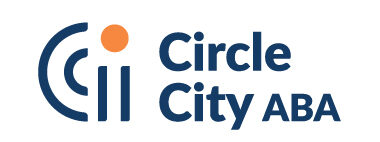Children with autism spectrum disorder may struggle with communication because they may have no way to communicate so that others understand what they are trying to say. Functional communication is the term used to describe when an individual can independently communicate their wants and needs to their support system and socialize with their peers.
Communication can include speech, sign language, picture exchange systems, or other assistive devices. Having functional communication gives an individual a way to express themselves rather than engaging in challenging behaviors, making it especially important.
What Is Functional Communication Training?
Challenging behavior can occur due to a child not having the words they need to communicate. Behaviors that can arise include aggression and self-injurious behavior (SIB). The reasoning behind these challenging behaviors could be due to attention, denied access to items or activities, and escape (Durand & Moskowitz, 2015).
Board Certified Behavior Analysts (BCBAs) work with each child to assess what communication strategies may work best for them. A lot of times, there is plenty of trial and error, with both verbal and nonverbal communication strategies being implemented. If you have questions about functional communication, BCBAs are happy to help.
Who Benefits from the Use of Functional Communication Training?
Functional Communication Training (FCT) benefits those with developmental disabilities who have language problems or delays. Individuals who may benefit from FCT are not limited to children with autism. Functional communication is ideally taught early in a child’s life. Consistency is vital to help increase the use of functional communication across all environments. When children functionally and independently use language to express themselves, we can provide them with items or an activity that they like to continue strengthening the use of functional communication.
Please reach out to your BCBA if you have any questions or concerns about working on your child’s communication system.
What Are the Long-Term Outcomes of FCT in ABA?
The primary goal of functional communication training in ABA therapy is to teach and reinforce alternative and appropriate communication behaviors. Specific long-term outcomes will vary based on individual differences but some of the general findings include:
- Reduced problem behaviors – As noted above, the main goal of FCT in ABA is to decrease problem behaviors by providing individuals with more effective ways to communicate their wants and needs. By providing these alternative techniques and reinforcements, FCT can lead to a significant reduction in problem behaviors over time.
- Skill generalization – Generalization is the ability to complete a task, perform an activity, or display a behavior across settings. The successful implementation of functional communication promotes the generalization of communication skills across people, settings, and stimuli. Incorporating multiple communication partners and settings can enhance generalization over time.
- Behavior maintenance – ABA functional communication training has proven that these behaviors and reinforcements can be maintained long-term. With ongoing support and periodic reinforcement, continued success is achievable.
- Collateral changes – Functional communication strategies can have a domino effect leading to positive changes beyond the targeted communication behavior. For example, FCT in ABA can promote improvements in social interactions, increase independence, and enhance quality of life.
Training Requirements and Qualifications for Professionals Conducting Functional Communication Training
There are a few different factors that determine the specific training requirements and qualifications for professionals conducting function communication training in ABA therapy including the jurisdiction, the setting, and the specific requirements of the employing organization.
Some of the general guidelines and qualifications include the following.
Education and Degree
To pursue a career in functional communication strategies, a bachelor’s degree is required in fields such as psychology, education, special education, or behavior analysis. Further education to acquire a master’s or doctoral degree is also common.
Certification
There are two certifications that are often preferred or required including the Board Certified Assistant Behavior Analyst (BCaBA) and the Behavior Analyst Certification Board (BACB) certifications.
Licensing
Depending on the jurisdiction, it may be a requirement to be licensed to practice behavior analysis. It is important to note that licensing requirements vary so it is key to confirm the regulations in the specific area of practice.
Training in ABA Principles
Professionals performing ABA functional communication training should have a strong foundation in Applied Behavior Analysis. Concepts such as reinforcement, shaping, prompting, and behavior assessment are critical to improving functional communication.
Experience
Professionals should have practical experience in behavior analysis and working with individuals with developmental disabilities or communication challenges. Real-life experience is typically valued and encouraged along with experience in conducting functional behavior assessments, developing behavior intervention plans, and implementing functional communication training.
Contact Us About Improving Functional Communication
Here at Circle City ABA, we develop programs and services specifically designed with the needs of children in mind. If you have questions on ABA functional communication training or the services we offer, contact us today. We’ll be glad to assist.
Sources:
Durand, V. S. & Moskowitz, L. (2015). Functional communication training: thirty years of treating challenging behavior. Topics in Early Childhood Special Education, 35(2), 116-126. doi:10.1177/0271121415569509



